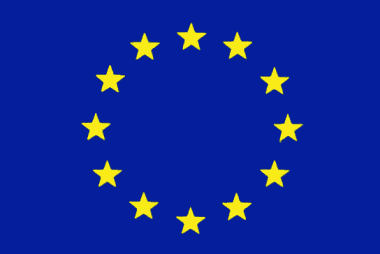R&D&i Roadmap for regional development living labs
The main objectives of R&D&i roadmap are to inform about regional policies and other programs such as CIP and ICT, identifying common requirements for ICT platforms and services for the co-design methodology and reporting to the on-going pilots for validation.
While the Internet has changed the established working and life practice, this gives the opportunity for collaborative work space that goes beyond the global boundary.As ICT4RD states, research and innovation on the Internet promises a fundamental change in territories
- Knowledge dissemination
- Social interaction
- Economic and business practices
- Political engagement
- Media
- Education
- Health
-
Leisure and entertainment.
The European Regional Development Fund (ERDF) aims to promote economic and social cohesion by correcting the main regional imbalances and participating in the development and conversion of regions, while ensuring synergy with assistance from the other Structural Funds. So, the ERDF intervenes in the three objectives of regional policy:
- Convergence;
- Regional Competitiveness and Employment;
- European Territorial Cooperation.
- innovation and entrepreneurship; environment; risk prevention; tourism; culture; transport; energy; education and health.
It is important to emphasize that all these interest areas are considered in the ICT FP7 and/or ICT PSP work-programmes, but the specific priorities required for the integration of rural areas in the urban-rural territories are not well addressed. Next, it is a summary of the specific needs for ICT related to research and innovation according to the different working areas:
– Governance and empowerment
-
Make government processes more efficient and transparent
-
Encourage the communication and information sharing among different interest groups.
-
Participation of people in the decision processes at local and regional level
-
Support to the decision making processes.
– Health
- Professionals and institutions to address the critical medical needs of rural communities, especially those that lack qualified medical personnel and services.
- Support and networking of people taking care of chronic illness people in rural areas
- Provide multimedia information on healthy life practices
– Education
-
Appropriate use of ICTs in the classroom that should foster critical, integrative and contextual teaching and learning
-
to create training, educational structures and community spaces.
– Social integration of different communities
-
Set up a communication frame, focusing on natural human partnerships
– Economic development
-
Offer labour-market oriented services, run special e-consultancy service
-
The farmers are also not able to know about the prices prevailing in other markets
-
The availability of prompt and reliable market information improves the decision making capability of the farmers and strengthens their bargaining power
-
Creation of new business models based on the information and knowledge provision
– Environment and territorial planning
-
Provide information referring to the preparation for decisions on territory development
-
Support relevant organisations of territory development with current data
– Tourism
-
Put into value the cultural assets of the region to boost the tourism based economy
– Culture
-
Creation of digital contents (TV channels) to disseminate the local culture
– Transport and energy
-
Support to the use of low-contamination vehicles
-
ICT for sustainable use of energy Considering these working areas, specific needs on technological research may be deduced:
-
Mobile and location based technologies in rural areas,
-
Provision of broadband and high speed networks in remote areas having affordable business models for all the stakeholders
-
Internet of things including large sensor networks and Radio Frequency Identification,
-
Security and privacy management systems, and especially adapted to people with disabilities
-
Multimodal and accessible interfaces
-
3D technologies
-
Modelling and simulation.
Other important issue to research in the present Roadmap, is about the smart regions initiatives, in the sense that they should consider the creation of self-sustainable people-led open innovation ecosystems that should:
-
Be an integral part of the regional ecosystem
-
Engage citizens early into the innovation process allowing to better appraise new and emerging behaviours and user patterns,
-
Enable "public-private" partnerships involving the citizens, service or product provision companies, research organizations and public administration
-
Assess continuously since an early stage, the socio-economic implications that have to assure the sustainability of the innovation ecosystem beyond the funding based on public calls.
Also, a cross-border networking of "smart" regions should support the sharing of experiences and best practices among european regions in the implementation of secure services in the application areas considered previously.
In order to complete and detail the Roadmap preparation, a survey has been designed and delivered to different users. The survey allows to identify the working areas of interest and priorities that should figure in this roadmap, guarantying that all needs from different communities involved in the innovation processes are examined.
The answers collected from this survey will be analyzed statistically and the results will be published in the Medlab project website.
The obtained R&D&i roadmap will be used to encourage the Smart Regions initiative in both national and european levels.







